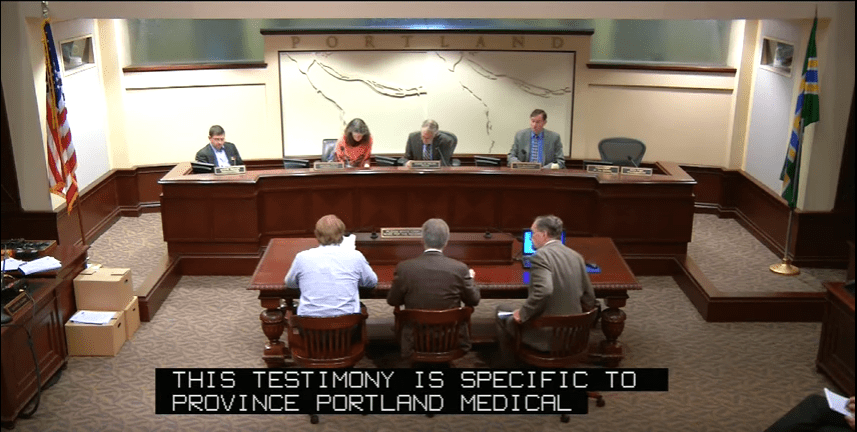Minimum parking requirements imposed in 2013 have contributed to the housing crisis in Portland by increasing the cost of building new apartments and reducing the supply of new homes. Three years later Portland has a toolkit full of more effective solutions to manage on-street parking concerns and Mayor Hales is proposing to repeal those three-year-old regulations.
In October, Portlanders for Parking Reform proposed that no off-site parking be required in the new Mixed-Use Zones (MUZ) created in the Comprehensive Plan. This plan, which will go into effect in January 2018, replaces the current commercial zoning in our centers and corridors with zoning that encourages housing and active ground floor uses. More than 60 Portlanders wrote to city council asking for the elimination of the current parking requirements and it seems that they were heard. Amendment 34 to the Early Implementation package of the comprehensive plan is summarized:
This amendment would change the recommended draft to remove minimum off-street parking requirements from sites close to frequent transit. This would undo a 2012 code change that imposed minimum requirements for developments of more than 30 units.
In addition, Mayor Hales has proposed Amendment 51 which directs PBOT to develop comprehensive Transportation Demand Management (TDM) to encourage residents in neighborhoods with these mixed-use buildings to forgo car ownership and use transit, active transportation, and car share services instead. When coupled with residential parking permits and other parking management tools, a healthy market for on-street parking can be developed which will lead to adequate, but not excessive, parking being built in new buildings.
The burden of the cost of required parking is borne by all residents, including those who cannot afford cars themselves. This is an exclusionary policy that restricts the access of lower income citizens to areas of opportunity. Parking requirements do little to alleviate on-street parking congestion and, instead, encourage higher rates of car ownership which undermines the cities goals for climate action and alternative mode shares.
Portlanders for Parking Reform encourages citizens to send in testimony to City Council supporting this amendment.
How To Help
Join Us on November 17th and Give Testimony
The biggest impact will come from people showing and speaking to council. Council needs to hear from people who face rent increases and displacement due to anti-affordable housing policy like parking requirements. Testifying is easy. Simply state, in your own words, why this issue concerns you and tell council that you want them to eliminate minimum parking requirements.
We have prepared a document with talking points for your convenience.
November 17th, 2PM @ Portland City Hall
If you plan to testify, please RSVP via this form so we have an idea of what support we can expect. We may be able to save you time by signing you up.
Send testimony to City Council
Before midnight on Thursday, November 17th you can send written testimony to cputestimony@portlandoregon.gov with subject line “Comprehensive Plan Implementation: Amendment 34”
Write to the Commissioners
Send an email to the members of City Council. We suggest you do this by November 17th.
Write to Commissioner Steve Novick, Mayor Charlie Hales, Commissioner Nick Fish, Commissioner Dan Saltzman, and Commissioner Amanda Fritz. Let them know that you value housing for people over shelter for cars. Let’s plan for the future we want for Portland and not a smog-choked-and-gridlocked playground for the wealthy.



